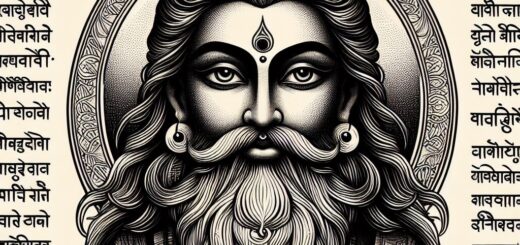Playing with Numbers Part-2 Divisibility Rule.
Summary of playing with numbers part2
Solved exercise of playing with numbers

Summary
It help us to check from which number the number is divisible without actually dividing.
An integer a and integer b not equal to zero and there exist an integer c, such that AC is equal to b.we write a divided by b to indicate that a divides b *divisibility is a positive property.
Divisibility Rule for 2
A number is divisible by 2 if the one’s digit is even. Therefore, any number that ends with 0,2,4,6, or 8 is divisible by 2.
Example: 62,108,63564,70006….
Divisibility Rule for 3
A number is divisible by 3 if the sum of the digits is divisible by 3
Example:96 we have to add the digit 9+6=15
15 is a multiple of 3, therefore 96 is divisible by 3.
Divisibility rule for 4
A number is divisible by 4 if the number formed by the last two digits is divisible by 4.
Example: 124 last two digits in 124 or 24, 24 is multiple of 4 therefore 124 is divisible by 4.
Divisibility rule for 5
A number is divisible by 5 if the last digit is 0 or 5.
Example: 100, 455, 680….
Divisibility rule for 6
A number is divisible by 6 if it is divisible by 2, 3.
Lets look at the number 132
- 132 is an even number.
- And, sum of the digits is 1 + 3 + 2=6
- 6 is a multiple of 3, therefore 132 is divisible by 6.
Divisibility rule for 7
we check whether the number is divisible by 7 by following the given steps, take the last digit of the number double it subtract the doubled number from the remaining number* if the result is divisible by 7 ,then the number is divisible by 7.
Example: 203
- The last digit of 203 is 3
- Double of 3 =3 X 2 = 6
- Subtract 6 from 20, 20 – 6 = 14
- 14 is multiple of 7 then the number 203 is divisible by 7
Divisibility rule for 8
A number is divisible by 8 if the last three digits divisible by 8
Example: 9640
640 ÷ 8 = 80 it’s a multiple of 8
Therefore 9640, is divisible by 8
Divisibility rule for 9
A number is divisible by 9, if the sum of the digits of the number is divisible by 9.
Examples: 3573 = 3 + 5 + 7 + 3 = 18
18 is a multiple of 9 therefore 3573 is divisible by 9
Divisibility rule for 10
A number is divisible by 10 if the number’s units place is 0.
Examples: 35680 is divisible 10 because its one’s place is 0
Divisibility rule for 11
According to the divisibility rule of 11, we must subtract.The steps followed are, add the digits in odd places, add the digits in even place, find the difference between both of them. If answer is either zero or divisible by 11, then it is divisible.
Example: 1353
[1 + 5] – [ 3+3] = 6 -6 = 0 therefore the number is divisible by 11.
Odd an Even places
Divisibility Rule for 12
A number is divisible by 12 if it is divisible by both 3 and 4.
Example: 384 is divisible by 12.
3 + 8 + 4= 15 it’s a multiple of 3,
84 is divisible by 4 therefore the number 384 is divisible by 12.
Solved Examples
Example 1:
Write the following list of numbers in the generalized form.
a. 125 b. 76 c. 59 d. 895
Solution:Given numbers are 125, 76, 59, 895
General form of 125 is as follows: 125 can be expressed as 100 + 20 + 5
(1 x100) + (2 x10) + 5 is 125.
76 = 70 + 6=( 7 x 10) + 6
59 = 50 + 9= (5 x 10) + 9
895 = 800 + 90 + 5= (8 x 100) + (9 x10 )+ 5.
Example 2:
Prove that the following numbers satisfy the reversing the digits method?
a. 12 b. 756
Solution:
a. Given two-digit number is 12.
Reverse of 12 is 21.
12 + 21 = 33
11) 3 3 (3
– 3 3
= 0
b. Three digit number is 756
Reverse of 756 is 657
756 – 657 = 99
99) 9 9 (1
– 9 9
= 0
Example 3
In a two-digit number, the digit in the units place is 4 times the digit in the tens place and the sum of the digits is equal to 10. What is the number?
Solution:
Let us take two digit number as ‘ab’
b = 4 xa
a + b = 10
Substitute b = 4a in the above equation.
a + 4 xa = 10
5a = 10
a = 2
Substitute a = 2 in the equation to get b value.
2 + b = 10
b = 10 – 2 = 8
∴ The number is 28.
Example 4:
Check is 195 divisible by 4 or not?
Solution:
Given divisor is 195 and dividend is 4
The last digit of 195 is 5, which is not divisible by 4.
Hence, 195 is not divisible by 4.
Example 5:
In the given 3 × 3 grid, arrange the digits from 1 to 9 (without repetition) such that the sum of the numbers surrounding any cell is a multiple of the number in the cell.
Solution:
The only way is provided here.
| 4 | 8 | 9 |
| 1 | 3 | 7 |
| 5 | 6 | 2 |
Exercise 1.1
1. Find the values of the letters in each of the following and give reasons for the steps involved.

Solution: we have 3 A
+2 5
B 2
A+5, we get a unit digit 2
For A =7 we get 7+5=12
the value of B=1(Carried on)
+3+2=6
Thus the addition is 3 7
+2 5
6 2
Hence A=7 and B=6
Question 2

Solution We have 4 A
+ 9 8
C B 3
A+8 We get a unit digit 3
For A=5, we get 5+8=13
The value of B and C= 1(Carried on)+4 +9=14
Thus the addition is 4 5
+ 9 8
1 2 3
Hence, A=5, B=4 and C=1
Question 3

Solution
We have 1 A
x A
9 A
AxA=A which is time for A =1 or 6
For 1×1=1 is not 9
for A=6, we get 6×6=36
Ax1=6×1+3(Carried on)
=9
Hence A=6
Question 4.

Solution: 3+A=6
A=6-3=3
=2+1(Carried on)
A=2
Now 7+B=a number with unit place 2i.e,12
There B=12-7=5
Thus the addition = 2 5
+ 3 7
6 2
Question 5

Solution
3xb=b
=B=D
3xA=CA
⇒ 3 × 5 = 15
Thus A = 5 and C = 1
Hence A = 5, B = 0 and C = 1
Question 6.

5 × B = B
⇒ B = 0 or 5
5 × A = CA
5 × 5 = 25
Only possible when B = 0
Thus A = 5 and C = 2
Hence A = 5, B = 0 and C = 2
Question 7.

Solution: B × 6 = B
6 × 4 = 24 → B = 4 and 2 is carried to
6 × A = BB
⇒ 6 × 7 = 42 + 2 (carried on) = 44
Thus B = 7
Hence A = 7 and B = 4
Question 8

Solution:1 + B = 0
1 + 9 = 10 → unit digit is 0 and 1 is carried to A
+ 1 +1 (carried on) = B = 9
A + 2 = 9 ⇒ A = 9 – 2 = 7
Hence A = 7 and B = 9
Question 9.

Solution:
B + 1 = 8 ⇒ B = 8 – 1 = 7
A + B = a number with unit digit 1
A + B = 11
⇒ A + 7 = 11
⇒ A = 11 – 7 = 4 (1 Carried to)
Now 1 carried on + 2 + A = B
3 + A = 7
⇒ A = 7 – 3 = 4
Hence A = 4, B = 7
Question 10.

Solution:9 = A + B
9 = 1 + 8 or 2 + 7 or 3 + 6 or 4 + 5 or 8 + 1 or 7 + 2 or 6 + 3 or 5 + 4 or 0 + 9 or 9 + 0
Now 0 is required at unit place
2 + A = 10
⇒ A = 10 – 2 = 8
B = 9 – 8 = 1
1 + 6 + 1 (carried on) = A = 8
Hence A = 8 and B = 1.
Exercise 1.2
1. If 21y5 is a multiple of 9, where y is a digit, what is the value of y?
Solution:
A number is divisible by 9 if the sum of its digits is also divisible by 9.
Sum of the digits of 21y5 = 2 + 1 +y + 5 = 8 + y
(8 + y) ÷ 9 = 1
⇒ 8 + y = 9
⇒ y = 9 – 8 = 1
Hence, the required value of y = 1.
2. If 31z5 is a multiple of 9, where z is a digit, what is the value of z?
Solution: A number is a multiple of 9 when the sum of its digits is also divisible by 9.
Sum of the digits of 31z5 = 3 + 1 + z + 5
3 + 1 + 2 + 5 = 9k where k is an integer.
For k = 1,
3 + 1 + z + 5 = 9
⇒ z = 9 – 9 = 0
For k = 2,
3 + 1 + z + 5 = 18
⇒ z = 18 – 9 = 9
k = 3 is not possible because 3 + 1 + z + 5 = 27
⇒ z = 27 – 9 = 18 which is not a digit.
Hence the required value of z is 0 or 9
3. If 24x is a multiple of 3, where x is a digit, what is the value of x?
Solution: Since 24x is a multiple of 3, the sum of digits 6 + x is a multiple of 3; so 6 + x is one of these numbers; 0, 3, 6, 12, 15, 18, ……..
6 + x = 3k where k is any integer.
For k = 0,
6 + x = 3 × 0
⇒ 6 + x = 0
x = -6. Not possible
For k = 1,
6 + x = 3 × 1
⇒ 6 + x = 3
⇒ x = 3 – 6 = -3. Not possible
For k = 2,
6 + x = 3 × 2
⇒ 6 + x = 6
⇒ x = 6 – 6 = 0
2 + 4 + 0 = 6 multiple of 3
For k = 3,
6 + x = 3 × 3
⇒ x = 9 – 6 = 3
2 + 4 + 3 = 9 multiple of 3
For k = 4,
6 + x = 3 × 4
⇒ 6 + x = 12
⇒ x = 12 – 6 = 6
2 + 4 + 6 = 12 which is multiple of 3
For k = 5,
6 + x = 3 × 5
⇒ x = 15 – 6 = 9
2 + 4 + 9 = 15 which is multiple of 3
For k = 6,
6 + x = 3 × 6
⇒ x = 18 – 6 = 12 not possible as x is digit
Hence the required values of x are 0, 3, 6 or 9.
4. If 31z5 is a multiple of 3, where z is a digit, what might be the value of z?
Solution: A number is a multiple of 3 if the sum of its digits is divisible by 3.
3 + 1 + z + 5 = 3k where k is an integer
⇒ 9 + z = 3k
⇒ z = 3k – 9
A number is a multiple of 3 if the sum of its digits is divisible by 3.
3 + 1 + z + 5 = 3k where k is an integer
⇒ 9 + z = 3k
⇒ z = 3k – 9
For k = 4,
z = 3 × 4 – 9 = 12 – 9 = 3
9 + 3 = 12 multiple of 3
For k = 6,
z = 3 × 6 – 9 = 18 – 9 = 9
9 + 9 = 18 multiple of 3
For k = 7,
z = 3 × 7 – 9 = 21 – 9 = 12 not possible as z is a digit
Hence, the required values of 2 are 0, 3, 6 and 9.
For k = 5,
z = 3 × 5 – 9 = 15 – 9 = 6
9 + 6 = 15 multiple of 3




























